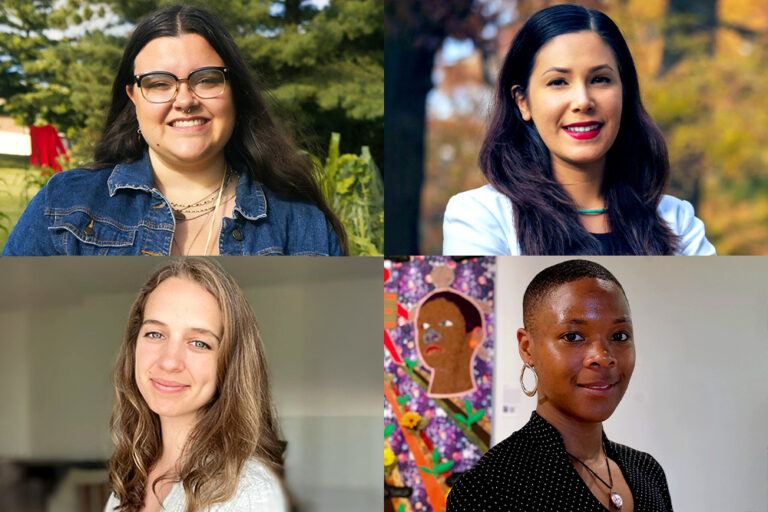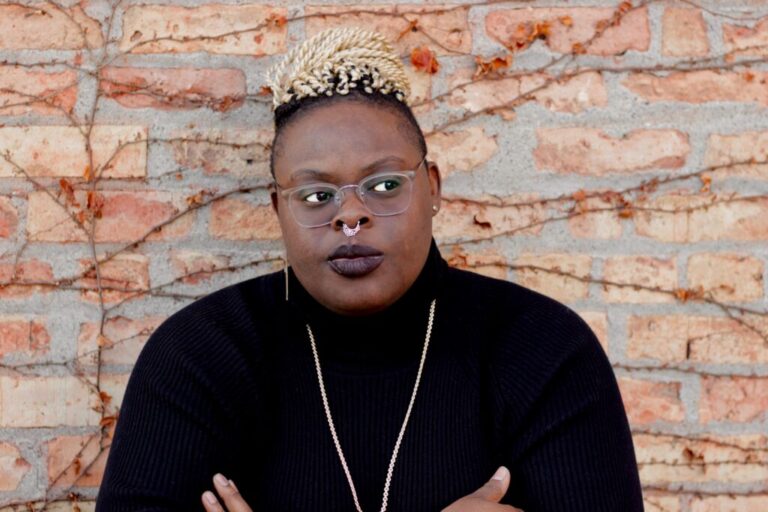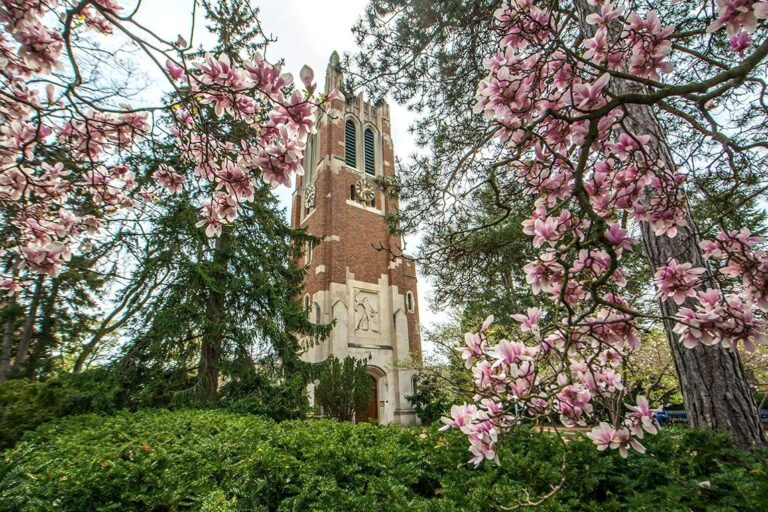The “Black Feminisms: Past, Present, and Futures” course taught by Chamara Jewel Kwakye, Academic Specialist in MSU’s Department of African American and African Studies (AAAS), emphasizes creativity and the practice of feminism in everyday life –– Black feminism as doing –– while learning “to live life alongside one another.” A core introductory course in MSU’s newly established B.A. in African American and African Studies, the AAAS 200 course will culminate with a public performance, titled Know and Remember US, on Wednesday, Dec. 7, at 10 a.m. in Studio 60 of MSU’s Auditorium Building (542 Auditorium Road, East Lansing, MI 48824) and Guest Directed by second-year Department of Theatre MFA student Ural Grant.
Students spent the last several weeks devising the show, which consists of a live performance and a multimedia archive of personal, community, and ancestral Black experience, including music, poetry, narrative, and video documentary.

During the first six weeks of the class, students explored the theoretical underpinnings of contemporary Black Feminist Studies while examining a number of broad themes in theory, including love, Black girlhood, relationality, change, and power.
“We looked at Black feminist theory in the past as well as where the field is going in terms of scholarship,” Dr. Kwakye said, “but I knew from the start that when I taught this class, I would use theory to create performance and art.”
Performance as a way of exploring Black feminist theory and making meaning out of one’s lived experiences is not new and certainly not to Kwakye. As a graduate student at the University of Illinois Urbana-Champaign, she took Dr. Ruth Nicole Brown’s course, “Revolutionary Acts,” which is where she first encountered a teaching model where theory and performance coincide.
“We looked at Black feminist theory in the past as well as where the field is going in terms of scholarship, but I knew from the start that when I taught this class, I would use theory to create performance and art.”
Dr. Chamara Kwakye
“We devised as we read and then we staged, choreographed, and performed it. So, this is something that I’ve done before,” Kwakye said. “It feels very organic to me. When I took [Dr. Brown’s] class, it seemed second nature to me. I thought, ‘This is what I spent my girlhood doing.’”
However, not everyone in the class was thrilled about the idea of performing in front of an audience. But as Dr. Kwakye introduced her own scholarship to the students and explained the crucial role that performance has had in it, students not only warmed to the idea of performing but became excited.
As students shared their ideas for the performance, they also located ways to collaborate with each other and “get in on” each other’s part of the puzzle. One student wanted to write a love letter to Detroit; another wondered aloud if prayer could be a performance (to which Dr. Kwakye responded with an emphatic “Yes!”). One student insisted that, while she couldn’t perform, she was good at editing videos and encouraged her peers to bring in photos of ancestors to add to a digital altar.

All these ideas, interventions, and contributions eventually became Know and Remember US, which will also include a performance by Dr. Kwakye of a poem from her book-in-progress, Cimarron, about the horrific sexual assault and murder in Nevada of a young Black girl, Sherrice Iverson.
The performance of Know and Remember US represents a culmination as well as a beginning, ideally, to a more critical and expansive way of thinking about education. Dr. Kwakye acknowledges that there are many different ways to teach Black feminist theory. She also realizes that this may be the only course in feminist studies, Black or otherwise, that some students will ever take. (She hopes not.) Black feminisms asks students to be fully engaged with the course’s questions and ideas and to begin to understand the task of education as a process, not a destination.
Kwakye said she hopes by the end of the term that students will have gained “an introductory understanding of Black feminist theory, praxis, organizing, and poetics and learn to appreciate and critically examine Black feminist approaches to meaning-making.”


